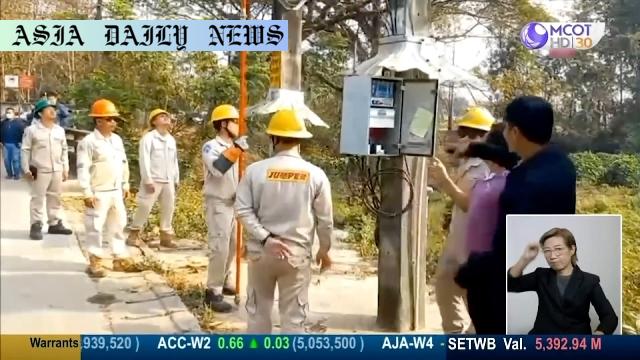Scam centers thriving in Myanmar are targeted by Thailand through electricity and internet cuts to curb rising fraud activities.
Thailand targets scam centers in Myanmar with electricity cuts.
Internet and fuel supplies shut down in five scam-prone areas.
Over 6,000 foreigners may be held captive in Myanmar centers.
Rescue stories surface, including a Chinese actor forced to scam.
Thai Prime Minister raises this issue in Beijing discussions.

Introduction
Scam centers have become a growing menace in Myanmar, causing regional and international concerns. In response, Thailand has recently initiated bold measures to combat these operations. From cutting electricity and internet supplies to disrupting fuel access, Thai authorities are taking a firm stance against the exploitation and fraud proliferating from these centers.
The Rise of Scam Centers in Myanmar
Myanmar’s political turmoil and instability have created a fertile ground for criminal syndicates to establish scam operations. These centers use sophisticated techniques to defraud individuals worldwide, targeting vulnerable areas of society with phone and online scams. The scope of these operations often extends beyond Myanmar’s borders, with victims and even unwilling perpetrators dragged into the illegal networks.
Thailand’s Immediate Actions
On Wednesday, Thai officials made a decisive move by halting the supply of electricity to five specific regions in Myanmar known for harboring scam operations. In addition, internet services and fuel supplies supporting these areas were severed. While the full impact of these actions remains to be seen, they are a considerable step towards disrupting the criminals’ infrastructure and operational flow.
Humanitarian Concerns
While the crackdown tackles fraud operations, humanitarian organizations have raised concerns about how deeply entangled individuals become in these centers. A Thai human rights group reports that more than 6,000 foreigners might be held captive within Myanmar’s scam hubs. Stories like that of Chinese actor Wang Xing, rescued near the Thailand-Myanmar border after being coerced into scam training, shed light on the human cost of these illegal networks.
Prime Minister’s Diplomatic Focus
Thai Prime Minister Paetongtarn Shinawatra, currently in Beijing for high-level discussions, is expected to place this issue high on the diplomatic agenda. With Myanmar being a regional neighbor, collaboration and international support will likely be essential to resolving the deeper challenges and criminal networks thriving in its territories.
The Wider Impact of Scam Centers
The scam operations in Myanmar go beyond just financial and moral consequences. For nations such as Thailand, they represent a growing threat to security and international reputation. The ripple effects of these centers extend to multiple geopolitical players invested in maintaining stability and preventing exploitation across borders.
A Coordinated Global Response Is Needed
Eradicating scam centers is a complex challenge that requires cooperation beyond national boundaries. While Thailand’s immediate actions address some core issues, international organizations and governments worldwide must unite to dismantle criminal hierarchies and help rehabilitate victims of these schemes. Collaborative efforts in technology, intelligence sharing, and human rights advocacy will be critical to ensuring these operations don’t relocate or continue unchecked in other vulnerable regions.
In conclusion, Thailand’s measures against scam centers signify an important step in combating escalating fraud and human exploitation. With firm actions, coordinated diplomacy, and sustained international cooperation, there is hope for a safer and scam-free region.
Commentary
A Necessary and Timely Intervention
Thailand’s decision to cut electricity, internet, and fuel supplies to scam centers operating in Myanmar is a courageous and commendable step. At a time when scam networks are growing increasingly sophisticated, such decisive measures send a strong message. It represents more than just a practical response—it is a firm stance against the exploitation of vulnerable individuals and the misuse of cross-border resources.
The Role of Regional Cooperation
Despite Thailand’s efforts, the fight against scam networks cannot be waged alone. International collaboration, especially within Southeast Asia, must play a critical role. Countries like China, which have been directly affected by scams originating in Myanmar, should rally behind Thailand’s strategies. Initiatives such as intelligence sharing, co-investigation, and joint operations could magnify the results of these localized actions.
Prioritizing Victims’ Rehabilitation
Beyond dismantling the infrastructural lifelines of scam centers, equal attention must be given to rescuing and rehabilitating the more than 6,000 foreigners reportedly held captive. These individuals, coerced into performing criminal activities, are victims in their own right. Humanitarian aid, as well as proper psychological and financial support, must form a key part of the region’s long-term approach.
Thailand’s actions highlight both the urgency of the scam center problem and the potential solutions that lie within collective effort. With sustained focus and international collaboration, there is a chance not only to eliminate these operations but also to restore dignity to numerous victims worldwide.


